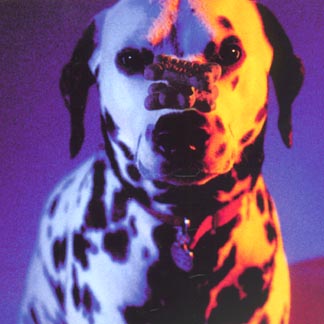
[ PET OHANA ]
Do’s and Don’ts
of pet treats
Plush bunnies, decorated baskets, rich chocolates and sugary treats are a delightful part of Easter tradition, but keep those sweet treats away from companion animals.
Any veterinarian will tell you that the Easter season often brings gastric distress to inquisitive pets who find their way into candy stashes meant for people. While not usually fatal, consuming candy is extremely painful for your animal and might cause an unexpected trip to the veterinary clinic.
Plan ahead to paw-proof your Easter treats and gift baskets. Don't hide them on the floor or leave them in accessible places where curious cats or dogs attracted to the delightful aromas might discover your basket full of goodies.
Foods dangerous
Alcohol
for pets
Bones, especially poultry bones
Candy
Chocolate
Coffee
Dough with yeast
Fatty foods and gravy
Macadamia nuts
Onions and garlic
While marshmallow chicks might only give them a tummy ache, chocolate -- especially dark chocolate -- can be lethal. The smaller the animal, the more life-threatening chocolate can be.
In case your pet does begin munching on your Easter goodies, always have your veterinarian's number handy so you can seek treatment quickly. Try to determine what kind of candy was eaten and how much was consumed.
>> A good rule -- No people food: Don't give in to the longing puppy eyes and misty kitty looks while you're eating Easter dinner. Resist the impulse to give your pet a sample of your table food all year long because human food is not the best for them.
You are not doing your pet any favors by giving him gravy, scraps of fat or human food leftovers. These can upset the gastrointestinal balance in our animal friends. Even milk is not recommended because it can cause diarrhea. Animals have special needs that should be met by feeding them nutritionally balanced pet food.
Even if you are careful not to feed your pets table scraps, make sure your family and friends follow your example. Let everyone know that no matter what kind of sad-eyed look Pup gives them, he is not allowed to eat any human food.
HAWAIIAN HUMANE SOCIETY
Rasta Dog can balance his treats on his nose. Mario Gomez entered this photo for the 2003 Pets in Paradise calendar. Entries for the 2005 calendar are being taken now. For entry information, visit www.hawaiianhumane.org or call 946-2187, ext. 225, to request an entry form.
>> A healthy eating plan for your pet: If you think an expensive brand of food always is better than a cheaper brand, think again. Price does not always reflect quality, so check the ingredient list on the bag to be sure that protein is listed within the top three. Also, check the expiration date and choose the freshest package available.
Just like babies, young animals require a special diet of food and treats designed for their growing years. As your pet matures, its diet should change to match its age and lifestyle. Ask your veterinarian to recommend food and treats appropriate for your companion, or buy an age-appropriate name-brand food that is marked "nutritionally complete" on the label. A consistent diet with the same food and treats will keep your pet happy and healthy.
>> When your pet deserves an extra treat: There are lots of treats created just for pets. Your veterinarian can recommend the best ones. Remember that healthy treats are part of your pet's nutrition for that day, so you might want to reduce the amount of food accordingly.
Tuxes & Tails
On April 10 the Monarch Room at the Royal Hawaiian Hotel will be home to the Hawaiian Humane Society's Tuxes & Tails 2004 event, "Reigning Cats & Dogs."For information on this elegant fund-raiser, call 946-2187, ext. 225, or visit the calendar at www.hawaiianhumane.org.
When your animal companion becomes overweight, it's time to cut down on the treats and switch to a "light" pet food. Obesity can be life-threatening to pets, so take action as soon as your furry buddy tips the scales.
Good dogs and cats deserve a homemade treat every day. Here are some recipes that you can bake at home:
Peanut Butter Doggy Biscuits
Recommended by the Schultz family from "The Original Gourmet Doggie Treat Cookbook," by Paws Publishing, 19942 cups whole wheat flour
1 cup wheat germ
1/2 teaspoon salt
1 cup peanut butter
1 egg
1/4 cup vegetable oil
1/2 cup waterPreheat oven to 350 degrees. Combine flour, wheat germ and salt in a large bowl. Mix in peanut butter, oil, egg and water. Roll dough out onto lightly floured surface to about a half-inch thickness. Place a bit of oil on rolling pin and fingers when working with the dough.
Cut out biscuits with cookie cutter in a dog bone shape or stamp out circles with the mouth of a jar, then press your fingers to make indents in a paw-print shape. Transfer biscuits to an ungreased baking sheet. Bake 5 to 15 minutes for small (1-inch) or 30 to 35 minutes for large (3-inch) biscuits. Transfer to rack to cool. Store in an airtight container and refrigerate.
Holy Mackerel Cat Treats
From recipes.robbiehaf.com1/2 cup canned mackerel, drained and crumbled
1 cup whole grain bread crumbs
1 tablespoon vegetable oil OR bacon grease
1 egg, beaten
1/2 teaspoon brewer's yeast (optional)Combine all ingredients; mix well. Drop dough by quarter-teaspoonfuls 1 inch apart onto a greased cookie sheet. Bake in a 350-degree oven 8 minutes. Cool biscuits and store, covered, in the refrigerator up to 3 weeks or freezer up to 1 year.
"Pet Ohana" runs the first and third Fridays of the month. The Hawaiian Humane Society is a nonprofit agency dedicated to preventing cruelty to animals. They are at 2700 Waialae Ave. Call 946-2187.
Click for online
calendars and events.

